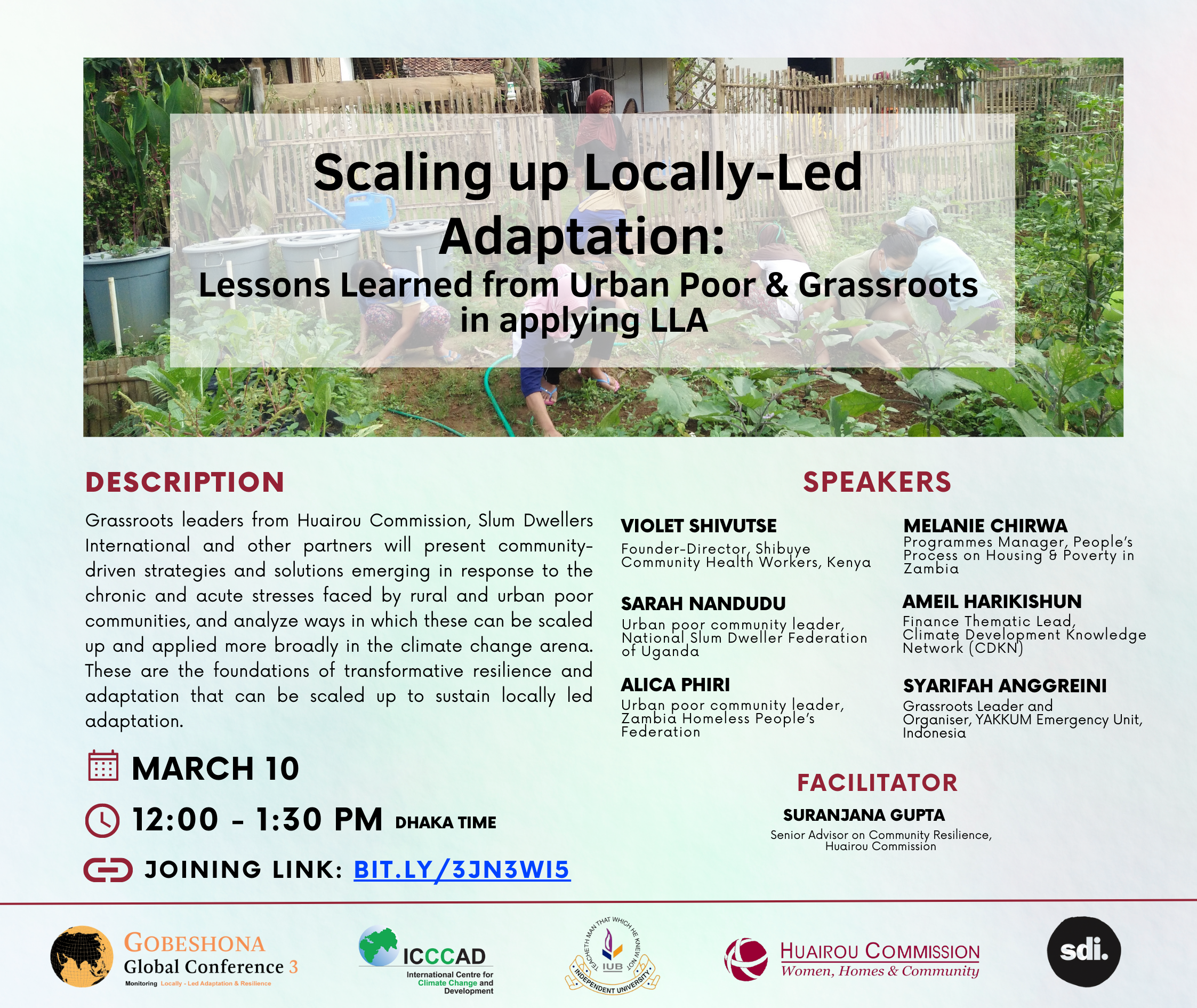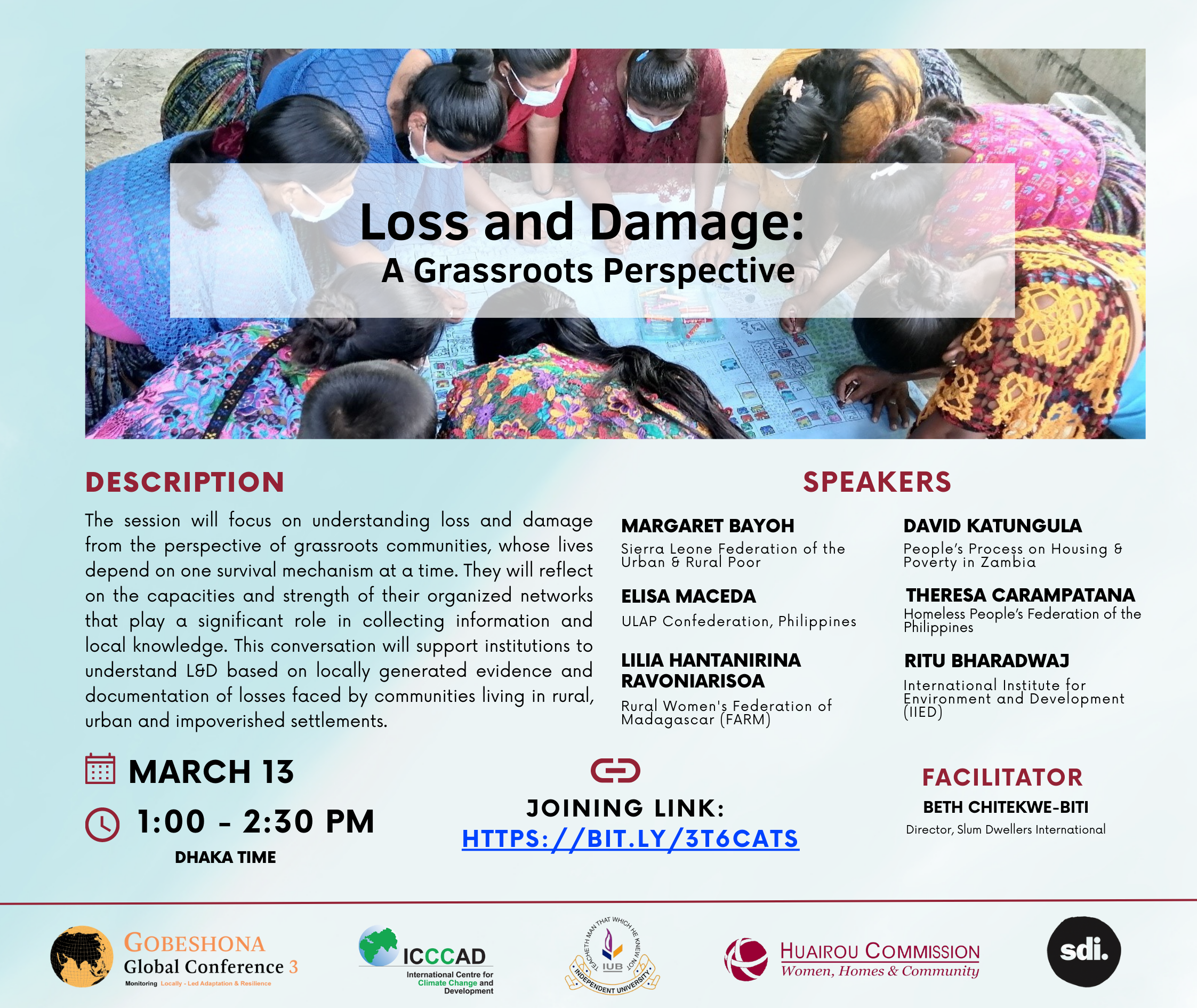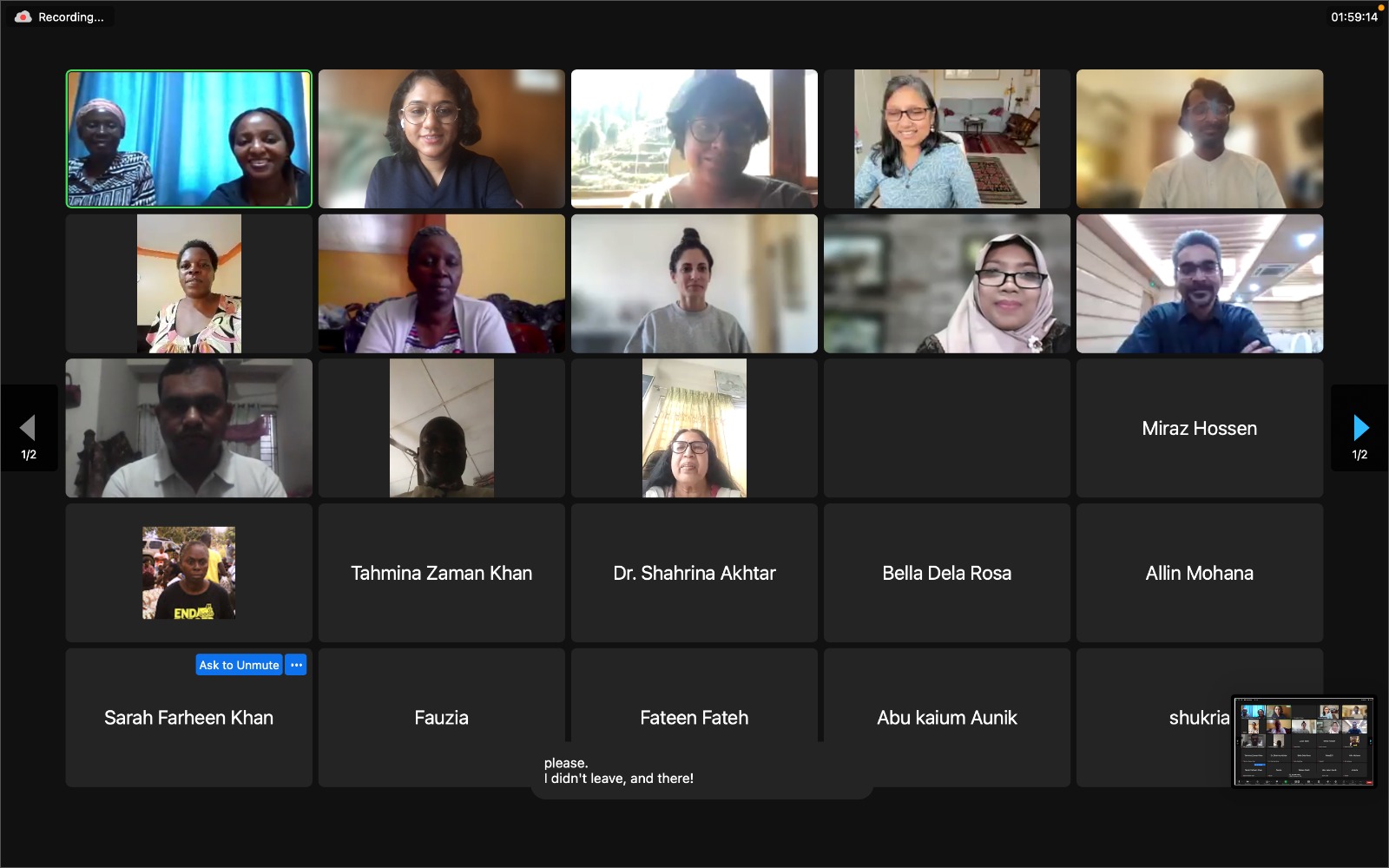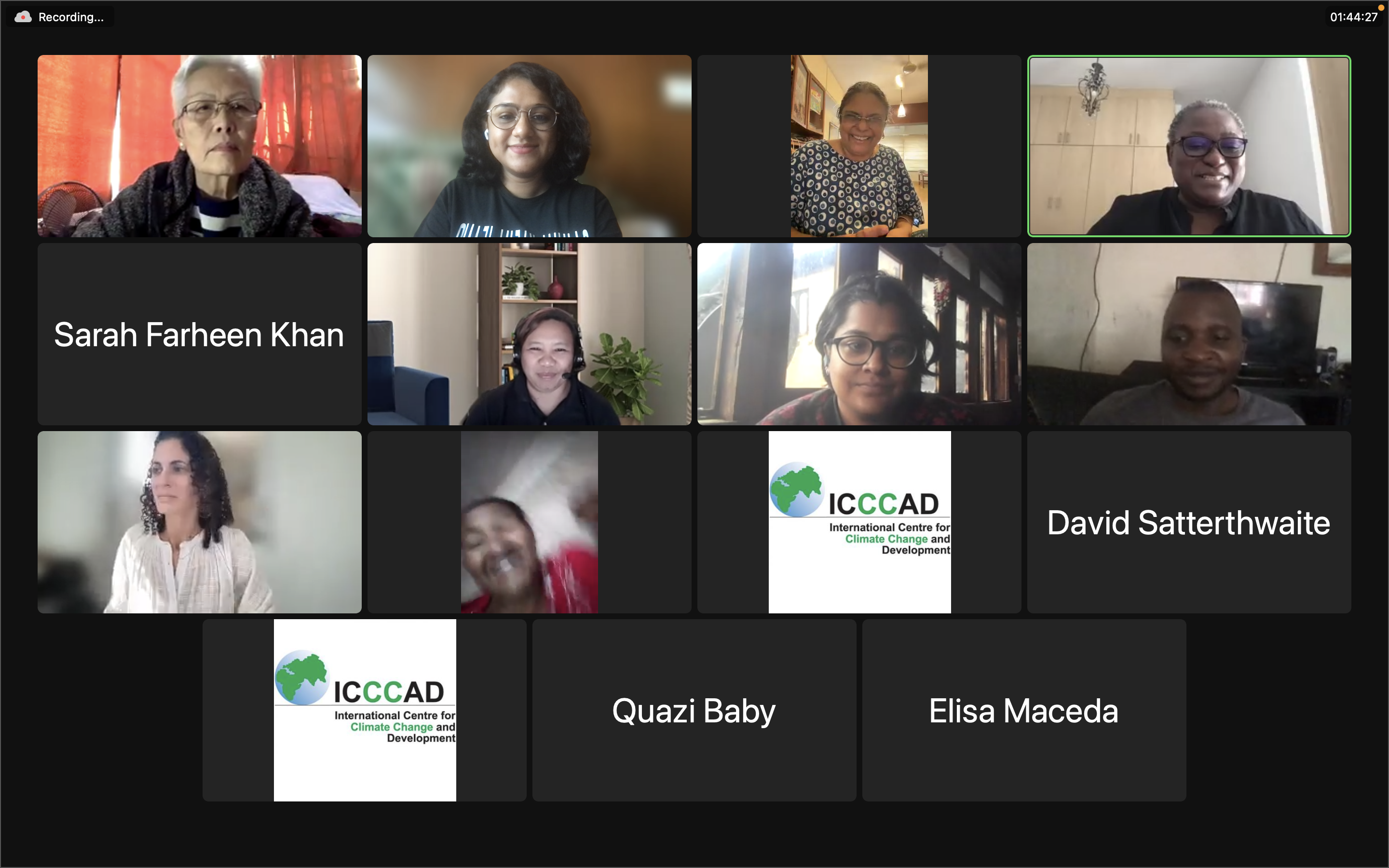Huairou Commission at the 3rd Gobeshona Global Conference
The Huairou Commission co-organised two sessions with fellow grassroots network Slum Dwellers International (SDI) at the Gobeshona Global Conference from March 10-16, 2023.

The session titled “Scaling up Locally-Led Adaptation: Lessons Learned from Urban Poor & Grassroots in Applying LLA” took place virtually on March 10, 2023. It focused on community-driven strategies and solutions that emerge in response to the chronic and acute stresses faced by grassroots and urban poor communities, and analyzed ways in which these can be scaled up and applied more broadly in the climate change arena. Grassroots speakers discussed what arrangements are needed for developing grassroots-stakeholders, especially government collaboration, what kind of partnerships work for them and the need to co-design solutions. Institutional partners also shared their own experiences of working with grassroots movements and the value of these partnerships and lessons learnt.
Some key messages from the session include:
- Social movements bring their own constituency, learning tools, knowledge, financial mechanisms, governance structures and experiences to the table. They act as aggregators, with inbuilt mechanisms to connect groups to create scale and impact according to local contexts.
- Grassroots women can be repositories of local knowledge. There are many examples of grassroots-led community data being used to support vulnerable groups and ensure last-mile delivery of resources and schemes. Partners/external institutions need to be respectful of communities and use their knowledge to learn collaboratively, ensuring that community knowledge benefits communities.
- Transparent and inclusive partnerships that ‘amplify’ the voices and agendas of grassroots women are needed. We need to move from looking at communities as beneficiaries and start seeing them as drivers of change. Accompanying finance, there must be a sharing of learnings, risks and capacities. Governments, development institutions and other stakeholders must ensure that locally identified priorities and needs are being met.

The session titled “Loss and Damage: A Grassroots Perspective’ took place on March 13, 2023. It focused on understanding the impact of short-term and long-term impacts of climate change and both the economic and non-economic/invisible losses that are often borne by urban poor communities and grassroots women’s groups. Grassroots women spoke about loss and damage from the perspective of grassroots communities whose lives depend on one survival mechanism at a time. They shared stories of how organized urban and rural grassroots groups are addressing losses and damages related to the climate crisis and disasters using tools, methodologies and partnerships that they have developed themselves to respond to their circumstances. The dialogue focused on how these lessons and experiences should shape the larger discussion and policies on Loss and Damage.
Some key messages from the session include:
- Grassroots communities in the global south are some of the hardest hit by the climate emergency. They are experiencing increasingly severe impacts of climate change, and the losses and damages to their lives, livelihoods, and communities are widespread and severe. The magnitude of these quantifiable and unquantifiable losses are largely unknown to the government and other stakeholders, as they lack the tools and partnerships with these communities to know what is really happening on the ground.
- Grassroots and urban poor communities have many of the tools, systems and methodologies required to facilitate effective quantification of losses and damages – through community-driven data collection and analysis, for example. They can effectively and efficiently channel financing for loss and damage to vulnerable groups that need it most thanks to decades of experience with their own community-managed urban poor and grassroots women-led community resilience funds.
- The role of women as the primary caregivers of their families becomes deeply stressful and traumatic for women as they battle against the impacts of climate change, do their best to rebuild after disaster, and struggle to provide for their families in the face of threatened or decimated livelihoods, food security, etc. This mental and emotional toll on women and families has a serious ripple effect and is one of the most invisible yet most profound losses / damages that exists at the nexus of climate vulnerability and poverty.


